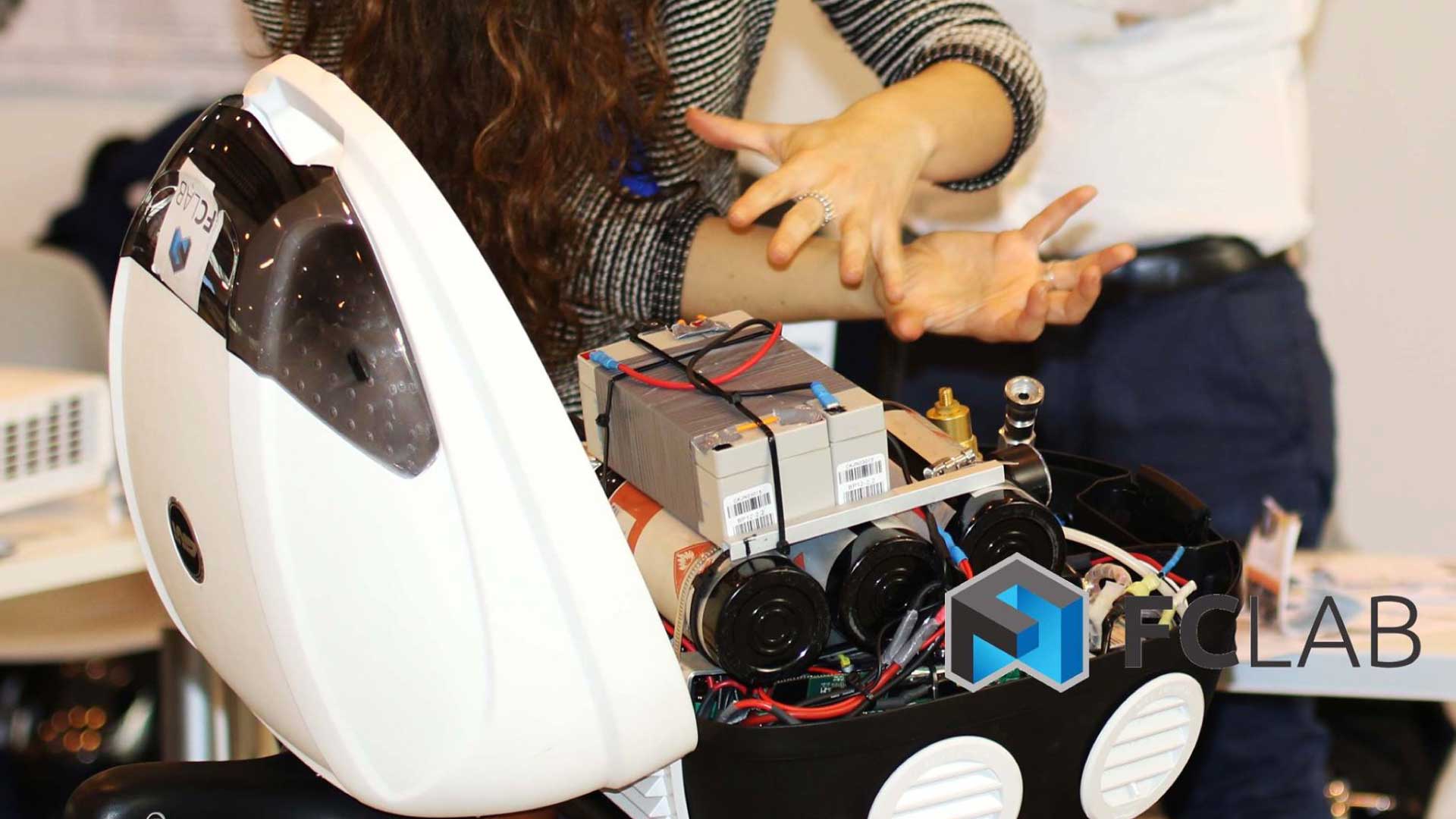18 Dicembre 2016 – Comprehensive review of hydrogen and fuel cell activities in the United States
Gregory J. Kleen – United States Department of Energy...
25 February, 2019

The training project develops with and completes all the activities of the research project FCLAB. The training project has developed the skills of researchers, engineers and technicians to be employed in to design, modeling, testing and control of the components of energy systems based on fuel cells. It aims also to develop the human resources needed for subsequent stages of technology development, pre-commercial scale demonstration and industrialization. The contribution to the research project provided by SMEs in the area of convergence is reflected on the share of training which will focus not only on typical themes of design, construction and testing of the pilot plants, but also on more general topics related to energy systems, fuel cells, energy storage devices and cleanup systems associated with regulatory and quality issues and on those aspects related to the development of more specific components, which might create a new production line.
The training project will is focused on four types of learning:
– internal courses and training modules prepared for the project in collaboration with the academic and research bodies involved in the project;
– on the job in a broad sense, through analysis or review, with the assistance of trainers, research in progress;
– on the job strictly through the launch of new research activities under the supervision of tutors involved in these activities;
– with other training activities offered by external events (courses, conferences, seminars, etc.) on the themes of the research project and providing for possible active participation.

The training project has developed progressively the skills of researchers, engineers and technicians to be employed in the research project. The projects in focused on the development of systems, processes and innovative technologies for:
i) the energy recovery from biomass and industrial wastes by means of the plasma torch gasification that produces a hydrogen rich gas useful as fuel in conventional and innovative energy conversion systems (ICE, MCFC);
ii) the CO2 concentration/separation by using the technology of the molten carbonate fuel cell (MCFC) and the utilization of the CO2 for the synthesis of chemical (methanol) or synthetic fuel (Synthetic natural gas, SNG);
iii) the capture of the CO2 from flue gases by using enzymes from moderately thermophilic microorganisms in advanced absorption unit and its using for the intensive cultivation of microalgae that can be used for the production of bio-fuels (vegetable oils).
The training project focuses on preparing personnel oriented to design, modeling, testing of greenhouse gas emission
reduction technologies, such as efficiency/energy saving, renewable sources, CCS technology, according to the international mitigation scenarios predicted by the International Energy Agency (IEA). It aims also to develop the human resources needed for subsequent stages of technology development, pre-commercial scale demonstration and industrialization.
The contribution to the research project provided by SMEs in the area of convergence is reflected on the share of training which will focus not only on typical themes of design, construction and testing of the pilot plants, but also on more general topics related to energy systems, fuel cell, cleanup systems and CO2 concentration/separation associated with regulatory and quality issues and on those aspects related to the development of more specific components, which might create a new production line.
Gregory J. Kleen – United States Department of Energy...
25 February, 2019Ezio Mancaruso...
25 February, 2019Umberto Desideri...
25 February, 2019